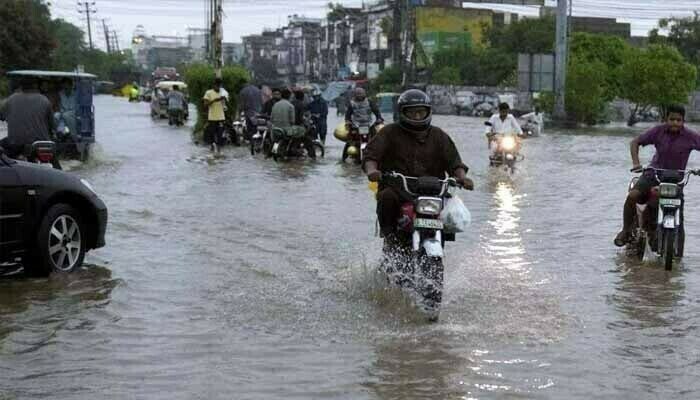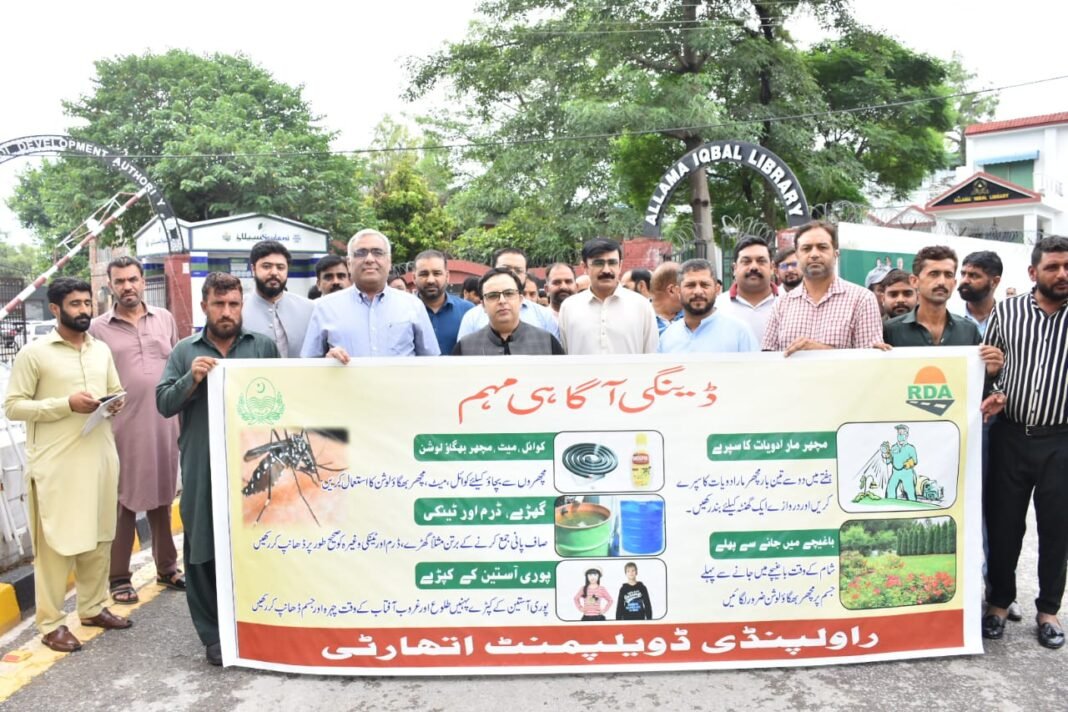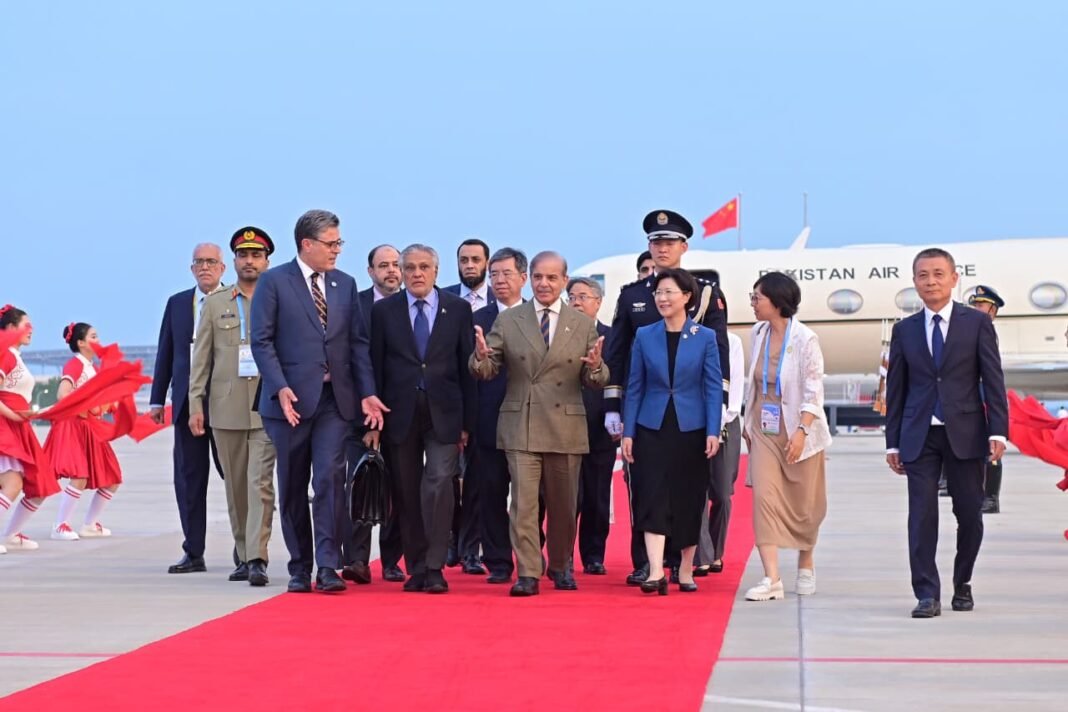
Islamabad : Experts underlined that the 2025 monsoon season marked by record rainfall, glacier melt, urban flooding, and flash floods has underscored Pakistan’s extreme climate vulnerability that demands urgent investment in climate-resilient infrastructure, water reservoirs, gender-sensitive relief, and proactive disaster preparedness.
The Sustainable Development Policy Institute (SDPI) under it’s Seminar Series organized a virtual roundtable on “Unprecedented Monsoon Impacts in Pakistan: Climate Extremes and Humanitarian Challenges”.
Dr. Shafqat Munir, Deputy Executive Director at SDPI, said the National Disaster Management Authority (NDMA), in collaboration with international partners, has presented the National Contingency Plan 2025 and the National Monsoon Contingency Plan 2025, highlighting the urgent need for water management, preparedness, and community-centered disaster response in the wake of Pakistan’s climate-induced humanitarian crisis.
The plans are based on four risk scenarios heavy inflows merging into the Indus from mountain rains; flash floods in northern mountains including Gilgit-Baltistan and Khyber Pakhtunkhwa; urban flooding in Karachi; and glacier melt, he said.
He noted that three of these scenarios had already materialized this season. “The floods in eight badly-hit districts of northern KP have created a severe humanitarian problem. Many areas remain inaccessible, shopkeepers cannot reopen businesses, and local philanthropies are filling critical gaps,” he said. Dr. Munir stressed the need for behavioral change towards natural hazards, noting Pakistan’s response mindset remained reactive rather than proactive.
“Pakistan contributes less than 1% of global emissions but remains among the world’s top 10 most climate-vulnerable countries,” said Dr. Munir. “This is no longer just a natural hazard—it is a climate-induced humanitarian crisis.”
In his keynote presentation, Dr. Shehzada Adnan, Deputy Director and Senior Meteorologist, explained the unusual weather patterns: “This year, monsoon onset was early from July 1 instead of July 15. Depressions from the Bay of Bengal converged on both northern and southern regions, while westerly waves shifted unusually northward.”
He cautioned of above-normal rainfall (13%) in northeastern Punjab and Kashmir and temperature rises of up to 6–7°C in July–September, which accelerated glacial melt and triggered glacial lake outburst floods (GLOF).
Due to poor storage capacity in Ravi, Sutlej, Jhelum and Chenab catchments, he warned, flooding in eastern rivers continues to devastate farmland and communities, he added.
Dr. Sofia Khalid, Chairperson & Associate Professor, Department of Environmental Sciences, Allama Iqbal Open University (AIOU), emphasized that Pakistan’s greatest weakness was lack of preparedness and community drills. “Despite repeated warnings from NDMA, people often ignore alerts. Our behavioral response remains reactive. Communities in flood-prone areas must be trained on safe evacuation points, emergency contacts, and disaster drills. Preparedness can save lives,” she said. She cited an example from Gilgit-Baltistan, where a local shepherd’s warning helped prevent major losses during a GLOF event.
Dr. Andaleeb Koasar Jhatial, Lecturer, Department of Economics & Finance, International Institute of Islamic Economics (IIIE), International Islamic University Islamabad (IIUI), stressed the gendered nature of climate disasters. “Floods and climatic shocks disproportionately affect women, children, and minorities. Lack of sanitation in displacement camps, poor mobility due to cultural barriers, and exclusion from compensation schemes worsen women’s suffering,” she said.
She added that girls’ education suffers disproportionately post-disaster, with many dropping out to take on caregiving roles. Calling Pakistan’s 2025 monsoon season “a climate-induced humanitarian crisis,” she urged for climate justice globally and inclusive governance locally, including gender-sensitive shelters, maternal and menstrual care, and women’s mainstream participation in disaster governance.
Dr. Hafeez ur Rehman, President of Al-Khidmat Foundation, drew on the NGO’s relief experiences during the 2010, 2022, and 2025 floods, stressing the need for small dams and water storage infrastructure. He warned that unchecked deforestation and construction along riverbanks were worsening flood damage. “In Buner, cloudbursts sent torrents of water downstream, carrying logs and stones that demolished infrastructure. In Swat, blocked waterways led to massive spillovers into populated areas,” he explained.
Sohail Majeed is a Special Correspondent at The Diplomatic Insight. He has twelve plus years of experience in journalism & reporting. He covers International Affairs, Diplomacy, UN, Sports, Climate Change, Economy, Technology, and Health.





![logo-1[1]](https://globalnewspakistan.com/wp-content/uploads/2025/01/logo-11-e1737618310315-300x187.png)